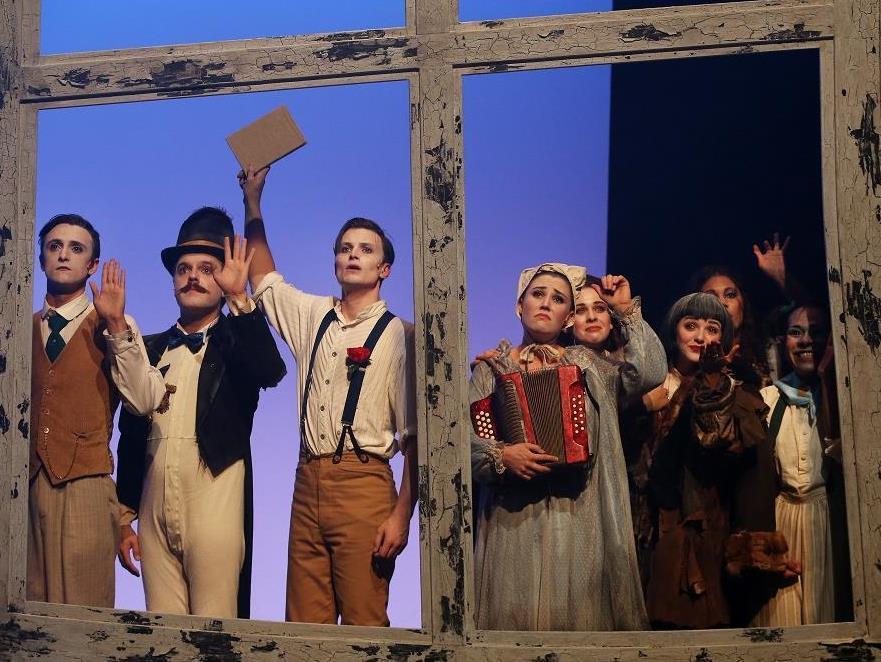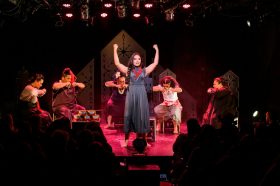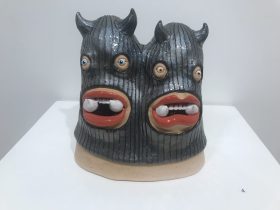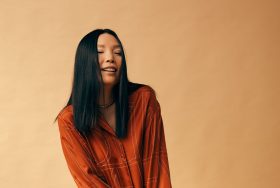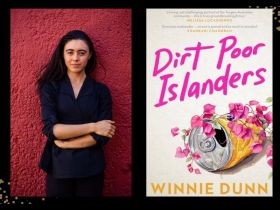A Dream Play, NIDA Graduating Student Production, 2015; Photo by Lisa-Marie Williams.
One question that recurs in most careers is when – or whether – to return to school to pursue graduate studies.
In an increasingly competitive job market, more people are turning to graduate studies to develop their skills and improve their prospects.
NIDA graduate, undergraduate and vocational course applications for 2017 are currently open
But in the arts where many of us work as independent practitioners on our own projects or in collaboration with others, the situation is slightly different. So what is the real benefit of graduate studies for the independent artist, as well as those trying to catch a prospective employer’s attention?
Simply put, it leads to more experimentation.
Writer Ally Burnham found the Masters of Fine Arts (Writing for Performance) she completed at NIDA pushed her to work differently with quite diverse results.
‘I did a film degree up in Brisbane and they were very heavy on the planning stage; you have to write out your synopsis first, you have to plan every scene before you hit the page and start writing. But during my course at NIDA they flipped the script,’ said Burnham.
‘Stephen Sewell who runs our course is a big fan of chucking away the planning stage and letting us write. I was really unsure about it at first, I remember, because I did come from such a strong planning background and I thought “Oh God, what’s going to happen if I write without a purpose?”’
Burnham found the new approach freed her from the planning stages that often create barriers to creative work. Now, when Burnham sits down to start a project, she asks herself, ‘Is the work unique? Is it subverting pre-established tropes? Am I saying something that hasn’t been said before?’
‘It really has encouraged me to experiment with ideas that aren’t tried and tested. Coming from my film background, they would really try to pressure us to write things that the market wants – to think about things you think will sell. Whereas NIDA encouraged us to just write what we were passionate about because that’s what audiences in the end really respond to, that’s what producers respond to – they’ll sense the passion in your work and in the end, that’s what will sell it. It has helped me steer away from wondering, “What’s missing in the market? What will sell?” Instead I look for what I’m passionate about and what I respond to.’
This difference in teaching at the graduate level creates a culture that values new ideas and fosters creativity.
Graduate courses available at NIDA
Kip Williams, Resident Director at Sydney Theatre Company, also said that his graduate studies encouraged him to experiment more at the planning stage.
‘Egil Kipste, who runs NIDA’s graduate course in Directing, sets the year up in a way where you begin by learning a particular methodology. The rest of the year is filled with scores of different projects where you’re putting what you’ve learnt into practice but also experimenting with different styles and forms that really test your own limits and expand your artistic voice,’ said Williams.
‘It is an extraordinary process because it really puts exploration, innovation and creativity at the forefront of the course. It’s not about being rigid, it’s not about having a set idea of what you’re going to do with a show, or forcing that on a text or on a set of actors. It’s about collaboration and experimentation and it sets the tone for the whole year.’
This experimentation influenced Williams’ direction of Macbeth in 2014 at the Sydney Theatre Company, where he flipped the relationship between stage and audience.
‘The audience was sitting on stage in the 900-seat Roslyn Packer Theatre and the performance took place in the empty seats. That spirit of experimentation inside the course has really inspired me and pushed me in my professional career to think in a much more creative and untried way about how I approach space when I am imagining a production for an audience.’
For more information about the courses on offer at NIDA visit nida.edu.au/courses.
